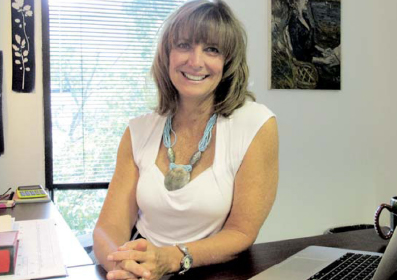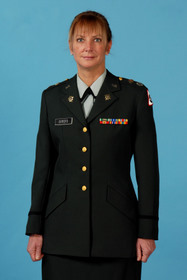Press


NJAJ MEADOWLANDS SEMINAR 2019
Featured Speaker on Employment Law - The trials and pitfalls of handling employment cases with a focus on witness statements in practice.
'Female Private Eye Says It's Not As Seen On TV'
The Two River Times
By John Burton | The Week of August 27 - September 2, 2015

ONE THING PEOPLE should know about what Jennifer Sirois does for a living: It’s not like what you see Kalinda Sharma do on “The Good Wife.”
“I’m sorry,” Sirois confessed, “it’s not as sexy and glamorous as it seems on TV.”
Sirois job is a private investigator, for what many of us who devour crime novels detailing the exploits of tough guy shamuses and fondly remember the cases of Jim Rockford and what Kalinda manages for her attorney bosses as the enigmatic, uber-competent investigator, it seems like a pretty exciting way to make a living. And it is, Sirois maintains, whose own background is intriguing in its own right, but just in different ways.
For the last five years Sirois has held a New Jersey State Police-issued investigator’s license for her business, Your Peace of Mind Investigations, 788 Shrewsbury Ave., Tinton Falls, where she works for area lawyers, and other clients. “I develop leads and locate people and locate assets,” she said, as a quick overview of what her days are like.
“My real skill,” in her work, “is getting people to talk to me.”
And that works best, she’s found, approaching people in person, as opposed to just attempting to reach out to them by phone or email. Coming face-to-face with interviewees, to go to them at their doors, they tend to be more inclined to talk, she discovered early in her work. These people skills, “(are) a strong asset for a female investigator,” she believes, for what is still a largely male profession.
But Sirois knows a little something of working in a predominately male world.
Sirois, who lives in Ocean Grove and in addition operates the Central Avenue House hotel (owned and operated by her family for. four generations), is a 30- year U.S. Army veteran, retiring as a lieutenant colonel. Over the course of her military career she’s held multiple command positions, working primarily in . military intelligence and military police, “which is closely aligned with investigations,” mostly working out of Fort Dix, here in New Jersey, she said.
Part of her military career had her embedded with feder-al law enforcement agencies providing support for international counter-narcotics investigations, as investigators began connecting the dots between drug trafficking and terrorist activities. “Every bit of information helps you develop the big picture,” she recalled of that work.
“It was there I really honed my investigative skills.”
More recently, Sirois has completed training and become a certified fraud examiner and is now also working as an integrity monitor for the state Department of Treasury, investigating Sandy-related fraud cases.
Sirois works regularly with about a dozen lawyers in Monmouth and Ocean counties, where she tracks down information and interviews clients and perspective witnesses. Along with that work, she works with private clients on missing persons cases, background checks for businesses and possible business partners. Another area that has kept her busy, is working for primarily women in regard to what is called “419 scams” (referring to the classification of the offense), involving Internet dating. Too often, women will meet men online, get to know one another via online chatting or emails. The conman “strings her along until he feels the time is right to ask for money.” And it can be tens of thousands of dollars from lonely and vulnerable women, Sirois said. ”These guys are so good they make you fall in love with them.”
‘There are very easy ways a woman can protect herself from falling for the scam,” including doing a little background work, Sirois said.
She won’t do divorce work that asks her to track down evidence of unfaithful spouses, as often shown on TV or in the movies – the P.I. skulking outside a motel with a video or still camera and zoom lens. The reason being, besides the distasteful quality of it, “that has zero bearing in New Jersey,” on divorces, she said.
“Divorce is about the separation of assets – child support, alimony and custody,” she explained. ”The common denominator is money,” requiring tracking down parties’ assets, instead of who they may have been sleeping with.
What many people don’t realize and TV and movies never really spell it out, is that what the fictional investigators provide for their clients is often against the law. There are strict requirements under the federal Gramm-LeachBliley Act, providing consumer privacy protection. As a licensed investigator, Sirois has access to a number of proprietary databases as she tracks down information for clients. However, she cannot share that information with the client unless the subject agrees to it. Violating those laws could result in the loss of her license, a fine or even a prison sentence with a conviction. “Again, it’s not like TY,” he said.
”You need to combine people skills with a real world knowledge of the law,” to do the job, which involves “dealing with facts and figures” and with dealing with people on both sides of the situation, she said.
And unlike the movies or TV, she doesn’t carry a gun. And that is for pragmatic reasons, Sirois said, given the difficulty in obtaining a concealed weapon carry permit in this state.
In the end what she is able to provide her clients is worth her efforts. ‘We give you the intelligence to make smart decisions,” she explained, “what would likely result in saving money or getting you money owed you.”

2013 Investigator of the Year Award
New Jersey Private Investigators Association, LLC
2014
The Board of the New Jersey Licensed Investigators Association is happy and pleased to announce the selection of the 2013 Investigator of the Year. Jennifer Sirois, principal of Your Peace of Mind Investigations, Ocean Greove, NJ is our IOTY for 2013.
Jennifer is a recent member in our association coming from a 28 year career in the US Army. Her Army background included both intelligence and investigations.
In her bio, listed on the NJLPIA website, she refers to Intelligence as a “combat multiplier” wherein she honed this skill. Jennifer brought these skills to the table with her intense participation with the NJLPIA.
As a new member she has become a ver active volunteer and is assisting at the Superconference.
Earlier this year she planned, selected the venue and presented on of our most successful and well attended dinner meetings.
Jennifer identified and is actively pursuing the State of New Jersey RFP related to Sandy Integrity monitoring as a jobs initiative open to all our members.
Lastly and most significant of all these points Jennifer show the Spirit of Humanity and giving by going above and beyond in offering personal assistance to those in dire need after super storm Sandy in her local community.
Please join us in recognizing Jennifer Siriois as our 2013 Investigator of the Year. Congratulations Jennifer!
A Soldier’s Exit Interview
Topic: Dept. of the Army, Free Agency, Public Service Profiles
By Ned Hodgman | 10. February 2010
The United States Army is one of largest organizational components of the federal government, and even older than the Republic itself and its Constitution, which it is pledged to protect and defend. The Army joins the Navy, Marines and the Air Force to make up the U.S. Armed Forces, headquartered in the iconic Pentagon.
The Army has often been seen as the most democratic of the armed services – a melting-pot of sorts, bringing in people from different walks of life and training them to work as a team for the common defense of the nation.

With the end of the military draft in 1972, the Army maintained this reputation, but its makeup changed most markedly with the decision, in 1978, to allow women to join this all-volunteer force, integrating female soldiers into all services (except combat units). So the untold story of the contemporary modern army is the inclusion of another pool of talent: women. Women now serve in 91 percent of all Army occupations and make up 14 percent of the active Army (see also WITA) and it is already hard to imagine the U.S. Army without a strong female contingent.
The Making of an Officer
No better example of this is Lt. Col. Jennifer Sirois, U.S. Army Reserve, who because of a mandatory Congressional policy, called “up or out” by Army officers, will be required to leave the service since she hasn’t moved up in rank in the proscribed time. Despite that, Sirois treasures her time in the Army and the privilege to serve her country. Her career has been a dramatic illustration of what a woman can do in her nation’s defense.
Sirois’ army career began with a recruiting letter she received as a college student at Temple University ROTC in the early eighties.
“It offered me six weeks of all expenses paid basic training at Ft. Knox, Kentucky,” says Sirois. “Upon return, I could choose to join the ROTC program or not. There were truly no strings attached.”
Boot camp “was very strenuous and tough, but not nearly as tough and strenuous as enlisted basic training,” says Sirois. “We had our weekends off, pretty much.”
The “long day” began at 0500, doing physical training (“PT”). “I loved learning how to shoot a weapon and place a Claymore mine, develop squad tactics and execute them. It just all worked for me,” remarked Sirois.
She was so much in her element that when she came back from Kentucky, she signed up. For Sirois, it was easy to make that decision as a self-described “tomboy.”
“The happiest place for me is playing in the woods,” she says with a chuckle. “I got the opportunity to combine playing in the woods with leadership and patriotism, which was a thread in my young life as a child.”
In school, Sirois was fascinated with government and politics. She “excelled in civics and history,” leading her to complete her B.A. in Political Science at Temple in 1983.
Sirois was commissioned as an officer in 1984 after she completed an “advanced camp” training program for ROTC cadets at Ft. Bragg, Georgia, which was designed to evaluate cadets for their leadership potential. All cadets were rotated into different leadership positions: squad leader, platoon sergeant, platoon leader, company commander, all within the training environment.
“Everyday training exercises would see different cadets rotating into these leadership positions and we would be evaluated upon our performance,” says Sirois. “Essentially we were going to become commissioned officers. Your entire skill set is leadership ability.”
In a civilian society where the word “leadership” has become little more than a buzzword, Sirois broke it down into its most essential meaning: “motivating people to do something they would not want to do.” Backing this motivation in the military, of course, is the threat of a sanction if a soldier does not follow orders. According to Sirois, effective leadership is the ability to get people to do what they don’t want to do without the obvious threat of a sanction.
From Military Police to Military Intelligence
Commissioned as a second lieutenant, Sirois married and elected to serve in the military police corps. Previously she had been selected for military intelligence but turned it down because it was an active duty billet in Germany. She wanted to stay stateside because of her marriage and the opportunity to raise a family while being in the Reserve.
 “The only specialty available to me in the geographic region I wanted to stay in was the military police. That being said, the military police was and is near and dear to my heart.”
“The only specialty available to me in the geographic region I wanted to stay in was the military police. That being said, the military police was and is near and dear to my heart.”
She enjoyed the officers’ basic MP training course that she and her fellow officers underwent. “We trained under infantry tactics, which is something that I excelled at. That is something I have a gift for.”
As a woman, Sirois, cannot serve in combat units such as Infantry, Armory or Artillery of the Army. This is a restriction mandated by Congress. Female soldiers can, nevertheless, serve at the battalion level of command in administrative positions in those combat services, or in their logistical or supply units, or, as Sirois did, as a leader in the military police.
As a second lieutenant, serving stateside on active duty, in a MP thirty-man platoon she commanded, Sirois and her troops were a combat support unit that was an “infantry-type of first responder” used to repel “probes of logistical perimeter.” In laymen’s terms, this meant Sirois and her fellow MPs job was to ensure that enemy forces didn’t enter into their unit’s security area.
“Our first mission is rear battle combat support,” says Sirois. Her team, located away from the front lines, would have been required to protect logistical support services, supply, and operational command and control (i.e., senior officers directing field officers and their troops). But Sirois and her subordinates also performed “typical cop” military police operations, which included investigating petty crime in the unit they serviced.
Serving in the military police for four years, Sirois then transferred to military intelligence (MI) as a reserve officer in 1989 and has been in MI since. In that tactical position, her unit was intelligence support to an infantry division.
The main purpose of MI is to “identify the enemy’s forward deploy echelon” upon which it “can be determined what larger forces are behind those forward deployed enemy components.”
 Military intelligence, Sirois explains, identifies, conducts surveillance, and collects intelligence. “You’re collecting against a set of requirements that are issued down to you from the commander; he want to you to look for X, Y and Z. So, you look for X, Y and Z, and report back up.”
Military intelligence, Sirois explains, identifies, conducts surveillance, and collects intelligence. “You’re collecting against a set of requirements that are issued down to you from the commander; he want to you to look for X, Y and Z. So, you look for X, Y and Z, and report back up.”
Despite being deprived of the ability to serve under fire, for Sirois there has been no greater reward than training and leading soldiers.
“I was so fortunate to have that opportunity, as a military police platoon leader and during my several company commands. You’re the closest to your soldiers when you’re in company grade ranks, when you’re a lieutenant or captain. Those are very, very rewarding ranks which to serve, and command certainly is a privilege.”
Moving up the ladder, Sirois served in a staff position in Europe. In a healthy career, one goes back and forth between command and staff positions. If not, one risks “becoming one-dimensional,” losing the chance for further command and upgrade in rank.”
In Europe, Sirois deployed in Stuttgart, Germany, serving in the US European Command (one of seven Army commands across the globe), charged with “conduct[ing] military operations and build[ing] partner capacity to enhance transatlantic security and defend the homeland forward.”
As a lieutenant colonel with a staff position on EUCOM, Sirois conducted assessments and made recommendations on the military capabilities of America’s European partners. As a security organization, EUCOM was populated with many U.S. civilian agencies and contractors, attesting to its vision of a “whole of government” approach.
“I’m fairly certain I saw every single one of the U.S. government’s intelligence agencies represented there,” confirms Sirois. “Every component of the military was represented—army, navy, air force, marines. So, it is, as we say in the military, a purple organization; many elements under one umbrella.”
Who Says it’s a Man’s World?
Col. Sirois takes umbrage, as she has in the past, when asked what is like to be a female in a male-dominated environment. The question was posed to her once before, in 1984, when she and five other female officers were pulled from a class of fifty and questioned.
“‘You have the wrong audience,’” she recalls telling an Army official who was trying to assess the mood of female cadets. “‘We volunteered to be here, so we have no issue with that.’” Sirois informed the officer, “‘The audience that you need to be asking that question are the men. They have just had their world order, as they knew it, turned upside down with the introduction of females into an otherwise all-male environment.’”
Despite excelling at leadership, Sirois learned the hard way that being a can-do woman officer comes with a price. At Ft. Bragg during her cadet days, she placed number one in a company of 230 cadets in a tactical application exercise. The mission: to lead one’s troops through enemy territory, facing various situations.
“I naively thought,” remembers Sirois, “that my platoon would be happy for me, that one of their own won a prestigious reward.” But instead “the men were hostile. The women loved it; the women were very supportive and congratulatory.”
Sirois reports that brother cadets also felt “threatened” and “envious,” and surmised that she “hadn’t militarily performed but had done something else to earn” the reward. Not retreating one inch, Sirois became more “aware of the dynamic of operating within a male-dominated environment.”
Despite being in the military, Sirois had to address the same demands that face many contemporary women: working and being a mother. “I was in a very fortunate position that not many women are, in that my ex-husband was able to provide for a family with a stay-at-home mom,” she says. “Of course there’s homework almost every day; when you’re in command you go into your unit a lot.” She also ran her family’s 140-year old bed-and-breakfast on the Jersey Shore, and is now preparing to begin work as a private investigator for a company in her area.
Working full-time or part-time, all mothers are essentially on the job 24/7. Sirois reminisces about the “sweetest comment” that her son, then five years old, made about her years ago when she took him on base – something she did regularly. Seeing his mother’s world, one day something occurred to her little man who looked around, then turned and said to her: “Mommy, I didn’t know that they let men into the Army.”
